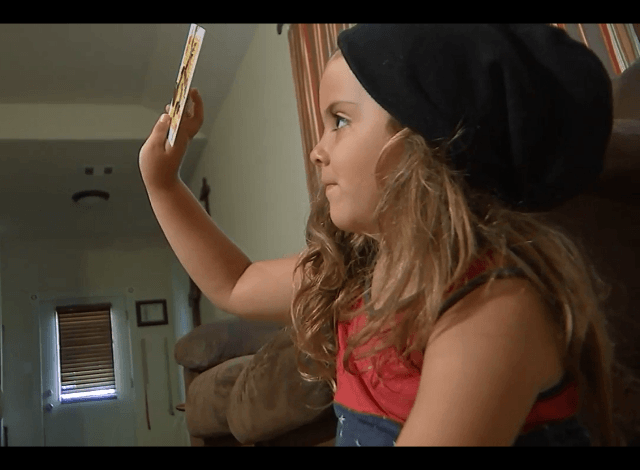Children across Texas are heading back to school but two boys, in different parts of the state, got sent home because their flowing tresses violated grooming policies for males. Their parents are up in arms, claiming “discrimination” and “sexism.”
“This is gender discrimination and sexist,” said Faye Abunijmeh, the mother of nine-year-old Habib Dwabi. His sweeping shoulder-length locks did not comply with their Fort Worth-area school’s dress code. She told KTVT that Joshua Independent School District officials previously said her son had to cut his hair before returning to school Monday. Instead, she sent him to class with his hair in a braid.
Abunijmeh griped there was no such rule for girls. She asserted Dwabi asked why his sister can have long hair at school but he cannot. “I barely know what to tell him,” she lamented, adding she wants to change the “gender thing.”
However, gender-bending hairdos do not fly in the school district’s Student Code of Conduct Handbook. A boy’s “bangs” must sit above the top of the eyebrow; the side, no longer than the jawbone, and the back must be cut so that it sits above the bottom of a dress shirt collar or atop a t-shirt collar. Regulations forbid extreme hairstyles and colors, long sideburns, ponytails, and man buns. Older boys must be clean shaven.
Abunijmeh started an online petition to try to change the hair policy. So far, it received roughly 2,800 signatures, many from other states. In it, she says her son started growing his hair out in pre-K to eventually donate his curls to a cancer charity that makes wigs for children. She asserted a district official called the boy’s efforts “commendable” but emphasized Joshua ISD had a dress code students must follow to attend school.
Monday night, several parents and students confronted trustees at the monthly school board meeting. One parent called the grooming policy “discriminatory” towards boys. Another, described the 30-year policy as “outdated.” Last spring, the board approved this year’s rules.
Elsewhere, near Houston, four-year-old Jabez Oates captured the national spotlight when Barbers Hill ISD turned him away from pre-K because his cascading ringlets extended noticeably beyond shoulder length.
“My son likes his hair,” said mother Jessica Oates, who told Inside Edition.com: “He doesn’t understand why he is not allowed in school over something so trivial.”
Oates said she did not cut her son’s hair since birth. On Facebook, she posted she read the Barbers Hill school dress code “in its entirety” before the start of classes on August 17. It defines boy’s hair length as above the eyebrows, the earlobes, and the top of a t-shirt. No Mohawks, faux hawks, “unnatural” hair colors, or eyebrow designs. Corn rows and dreadlocks can be worn if they are within length requirements.
“So I came to school today with his hair in a bun. It’s not past his collar, it’s not past his earlobes, it’s not past his eyebrows,” Oates stated, adding he also had an appropriate black hair tie. “So I am confused as to why he is not being allowed in school today.”
She claimed that during school registration she asked about the hair policy and was told he could keep his hair by writing a letter citing a religious or cultural exception, according to KTRK. Oates said her family is part Cocopah Indian and the culture views hair as strength.
Oates believes these rules are sexist. She asserts the school district does not have hair policy for girls. She called the grooming regulations for boys “outrageous and outdated.” She plans to fight this school policy.
The school district responded in a statement: “Our local elected board has an established policy based on community expectations, and Barbers Hill ISD administration will continue to implement the said policy.”
Like all Texas public schools, the Barbers Hill ISD dress code is part of a Student Code of Conduct, which is based on Chapter 37 of the Texas Education Code. It states: “Hair-length regulations that apply to boys but not to girls do not manifest such an affront to students’ constitutional rights to merit judicial intervention.”
This statement refers to the 1997 Bastrop ISD v. Toungate case where a male student challenged the hair length rule, asserting discriminatory hair policies applied to male but not female students. While the court recognized long hair as socially acceptable on boys, it upheld the grooming policy, saying it did not deprive male students of an equal opportunity to receive an education or to participate in school functions. It also determined hair length restrictions for male students “impose no barriers that operate to favor one sex over the other.”
Follow Merrill Hope, a member of the original Breitbart Texas team, on Twitter.

COMMENTS
Please let us know if you're having issues with commenting.